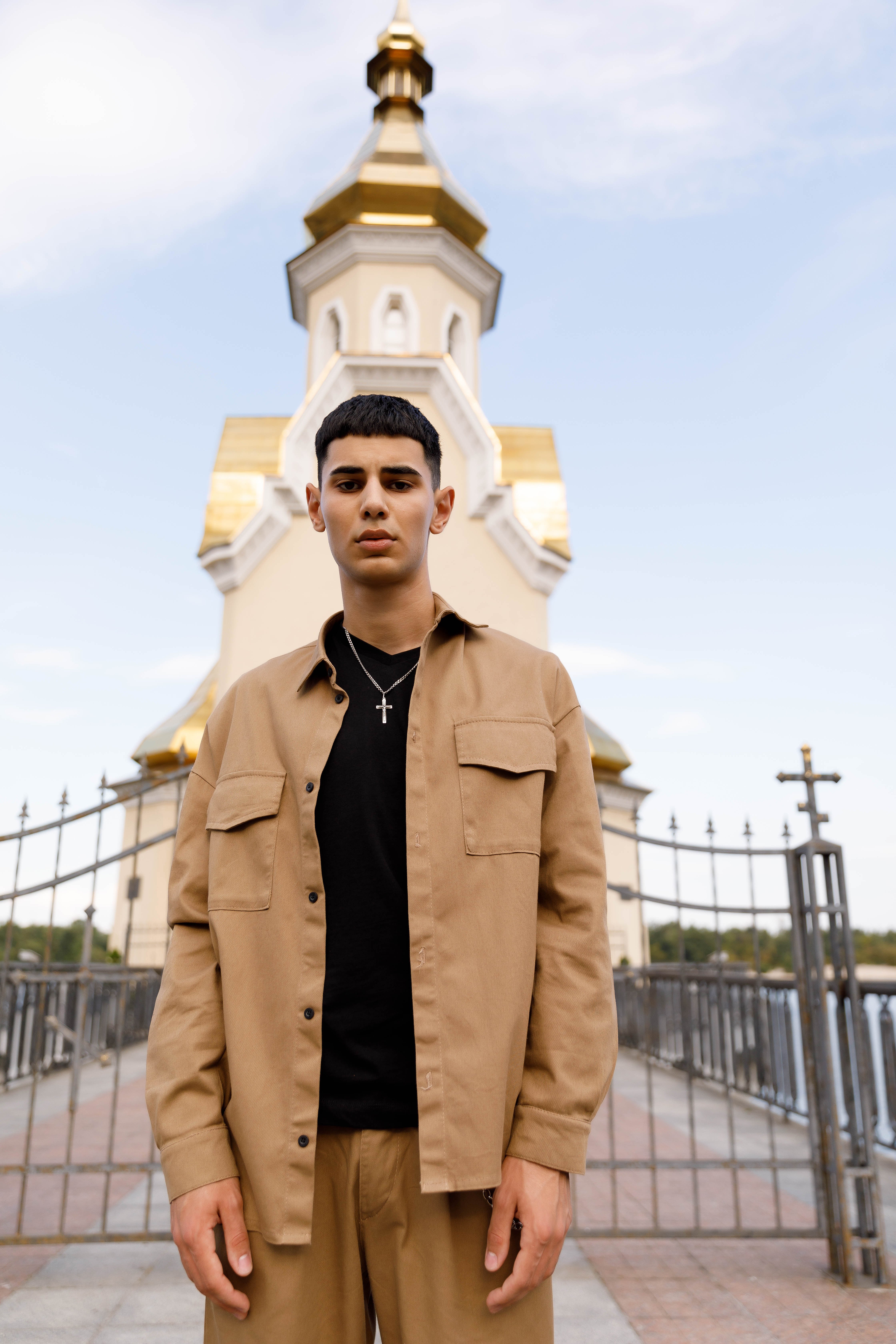Ilya Gerasimov, a 20-year-old student from Kyiv, is inspired by the belief that everyone in Ukraine is important and can contribute to victory.
Ilya Gerasimov is a civically engaged student, one of the many Roma who often go unrecognised because they don't fit societal perceptions. This interview with him accompanies our Fighting for a Fairer Future report, which highlights the contributions made by Roma to Ukraine's defence, examines the war's impact on Roma communities, and offers ideas for inclusive post-war reconstruction.
What was the hardest challenge you faced in life, and how did you tackle it?
The biggest challenge for me is not to have my own opinion accepted by others. Are my narratives about what is right or wrong, about dissent and creativity, appropriate? What will others say and how will they react? The main challenge for me is to act decisively and confidently, first listening to myself and then drawing conclusions from what others have said.
Who or what inspired you to keep going during tough times?
I am inspired to move forward and achieve my goals, despite the difficulties. My family supports all my endeavours and don’t let me be disappointed in defeat—especially my mum, who shows me by her own example that hard times harden us and make us stronger.
Can you share a moment when you felt like giving up but didn't, and what kept you going?
In different situations in my life I have wanted to give up, but a special stage of despair was the period of the invasion. At the beginning of the full-scale Russian invasion, all my dreams and plans for the future were destroyed. The perseverance and unity of the people brought back my ability to dream and make plans despite this new reality. After all, the belief that everyone is important and contributes to our victory inspired me and gave me the strength not to give up.
How do you stay positive when faced with difficulties?
I keep a positive attitude when there are difficulties and obstacles in my life. I look for the people who bring out positive emotions in me. For me, these are usually my younger brothers and sisters who, with their vulnerability and childish wit, share their light and positive energy with me, helping me get through all my inner difficulties.
What advice would you give to someone going through a tough time right now?
I would advise those who are currently facing difficulties to look back and analyse your path: how much you have gone through; how many difficulties you have overcome; what kind of support and hope you have gained; and how many people believe in you and will confidently help you through all the difficult times.
How has overcoming challenges changed your outlook on life?
With every challenge I overcame, I drew conclusions about my life's journey, and this changed me and helped me become a better version of myself. This has helped me to develop endurance, resilience and the ability to make decisions in critical situations.
What lessons have you learned from facing hardship?
The main lesson I learned from overcoming difficulties is that we are not given unbearable obstacles—we can cope with all of them. The main thing is to believe and not give up on ourselves.
How do you think your experiences can help others facing similar difficulties?
Although my experience is not so great, based on my 20 years of life I can give the advice that it is never too late to start over and rethink your path in a new way. We are given a life to live, to live differently every day, realising the importance of change and its impact on our future.
What motivates you to keep pushing forward, even when things seem impossible?
What motivates me to move forward and never give up are the goals I set for myself and the opportunities I can open up for myself and my family.
Looking back, what are you most proud of in your journey of overcoming obstacles?
The thing I am most proud of is that I have started to declare active civic positions, to speak about the topics that concern my society, and to position myself as a leader who can convey thoughts and help make them felt. By improving myself and developing new leadership skills, through my example of publicly interpreting issues in non-standard ways, I encourage others to express themselves in various fields and become useful public figures.
Why do you consider yourself a hero?
Heroes are not born, they are made. And I believe that every person in this world is a hero, but on a different scale, a scale that is up to everyone to choose. Am I a hero, yes! On what scale? Life will tell.

Roma Foundation for Europe
The latest

Serbia Must Amend Missing Persons Alert System to Protect Vulnerable Adults

Constitutional Review of the Šutar Law Confirms Serious Rule-of-Law Concerns

Europe’s Growth Depends on Roma Talent
Browse by category
Campaigns
Events
Facts
Press
Voices
For media inquiries:
[email protected]Sign up here so you don’t miss out on campaign updates, upcoming events and other news from the Roma Foundation for Europe and our network.
Sign up for our newsletter